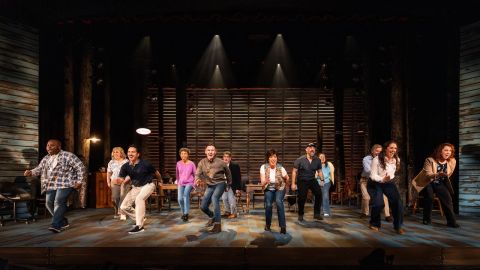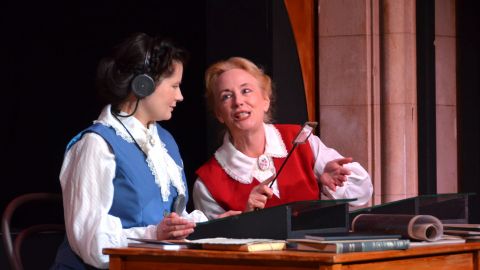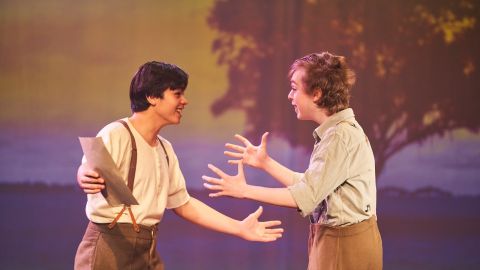Director’s Diary – Georgy Girl: The Seekers Musical
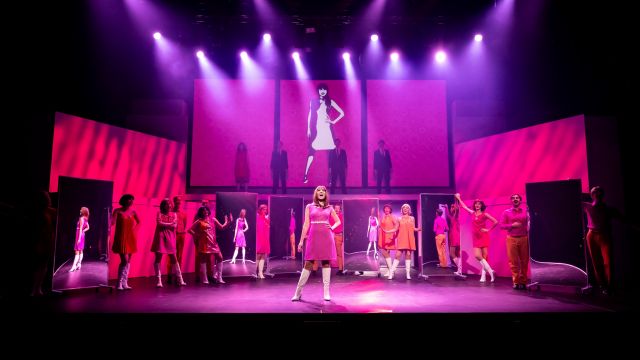
Tim Dennis directed the world community theatre premiere of the musical George Girl at Sydney’s Miranda Musical Theatre Company and was thrilled by its success and a visit from a Seeker.
Getting Started
I remember seeing an email from David Spicer calling for expressions of interest in staging Georgy Girl and passing it to the committee. Having seen the professional production in 2015 I felt there was excellent potential to stage the show at the new Pavilion Performing Arts Centre — it would be a great production for our company members and a hit with patrons as well.
The committee had mixed responses — “Can we afford this?”, “We don’t know how it will go”, “I don’t know The Seekers”, etc. But there was a strong script, great songs, and the opportunity to stage a world amateur premiere — a nice feather in the cap for any theatre group. Having grown up listening to The Seekers and singing along with my family, I saw a solid foundation for a strong piece of musical theatre.
The original professional script had a good deal of biographical content. While that can sometimes be daunting to stage, I knew we’d be solving the “I don’t know The Seekers” response with smart storytelling and design.
At the same time, MMTC has had a series of financial challenges (haven’t we all?) with staging recent productions and had just made a move to decrease the scope of our next production. I felt sure that we could make a big success of Georgy Girl if we could secure it.

Budget
As with all community theatre groups these days, the balance between enabling local theatre and staying within budget is delicate and fraught. I found it especially challenging knowing we would be under the microscope as the first amateur group to produce the show. Balancing the budget became even trickier as costs mounted — but so did ticket sales. We worked hard to ensure a much-needed positive financial result for MMTC, while maintaining technical quality on a tight budget. More than one night was spent running numbers in my head instead of sleeping.
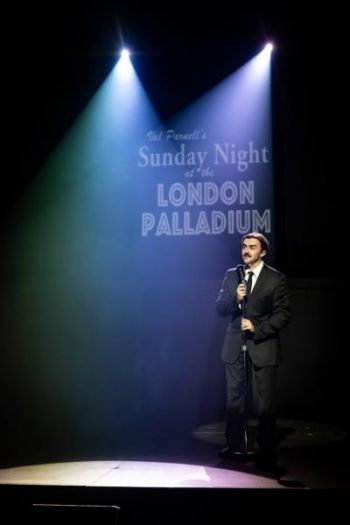 Vision
Vision
The script is very cinematic — many locations, short scenes, and a high volume of historical exposition which can be a challenge to stage effectively. The script cleverly balances narration with practical scene and costume changes and contains excellent reference materials and background.
The character of Ron Edgeworth is critical to the show’s flow. He is the narrator and eventual husband of Judith. Our lead delivered the exposition with character, humour, and great timing, helping cover transitions and keep the energy up. One method I quickly adopted was the elimination of scene change blackouts. Keeping changes visible (certainly not a new concept!) and fluid kept the audience engaged. I coined the terms “blue-out” or “Ron-out” to cue changes without darkening the stage. We also used projections, like the professional production, to help solve the problem of multiple locations and to support storytelling.
Design
The big question from the outset was how to approach a show with limited resources. Something as simple as not having rehearsal tracks at the start made choreography planning harder — but we resolved this early, and those resources will now be available to future groups staging the show.
Our set design paid homage to the original while creating something distinct and scalable for other community groups. The set featured floor-level doors for smooth transitions and ample “GG Blue” white space for projections and lighting. It became another layer of the show’s storytelling. Costumes are also a large part of the design. We needed 1960s appropriate designs and plenty of them. We couldn’t just throw money at these problems — instead, we succeeded thanks to a tireless and talented group of volunteers who brought creativity and determination to every part of the build.
In the end, we developed a full suite of production resources — set, props, costumes, musical instrument (that double bass!), projections, and cueing — which are available for hire.
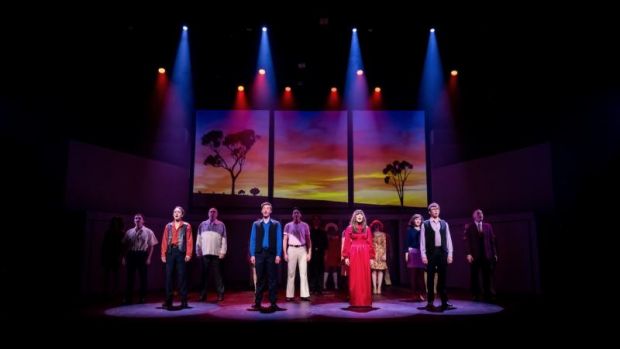
Audition Process
MMTC follows a standard audition process, with the full production team, a knowledgeable company member, and an outside panellist offering their expertise. I knew from the outset that casting the four Seekers would be paramount, and the panel fully supported that priority.
The sound and chemistry of The Seekers was everything. Judith has 37 scenes and 17 songs, and the three lads are not far behind. We needed a group that could sing harmonies, carry the narrative, and feel believable as a world-famous band.
Auditionees were supportive of our focused approach, and the final casting was absolutely the right choice. Equally critical was casting Ron — the historian and narrator who carries so much of the story. I was looking for strong comedic timing, stage presence, and vocal ability.
We were extremely fortunate on all fronts. While I won’t name individuals here (they are acknowledged in reviews and programme). I’m deeply grateful to everyone who came on board and brought the show to life. Future directors: choose your Seekers and Ron with great care. They are your winning hand.
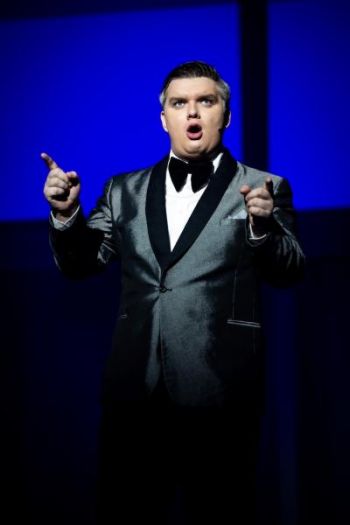 Rehearsals
Rehearsals
Rehearsals are always an interesting animal. Many cast members come straight from another production (we certainly did!), and it can take time for camaraderie and connection to build again. Knowing I’d be away, I front-loaded rehearsals — “tornado blocking” and fast-tracking character work. The goal was to let people digest and return from the Christmas break with confidence.
This approach was partly successful — we still needed the full rehearsal period after January, but the cast returned with a visible strength and understanding. Accents were a key focus area. There’s a mix of UK and Australian voices in the show, and it was vital to establish consistency. Our cast worked hard on this and rose to the challenge beautifully. And honestly? With a cast like ours, rehearsals felt like having my own private Seekers concert every second night. What a joy to experience that.
Box Office
From early in the process, we kept hearing: “The Seekers? I love them! I’ll be there.” That early enthusiasm translated directly into ticket sales. We opened bookings in November for a March season and had strong sales through November and December, which continued right up to opening night.
We expected the show to appeal to older patrons, but were pleasantly surprised by the diversity of our audience. Georgy Girl turned out to be one of MMTC’s strongest box office successes since before COVID — rivalling the likes of Les Misérables and Wicked at our large-capacity venue.
Production Week
Our in-theatre production schedule is intense — eight days total: four days of technical and four days of performances (six shows in all). It’s a big ask, not just for performers, but for the entire crew. If I had the chance to do it over again, I’d consider advocating for an extra day or two of venue time for spacing, additional tech runs, or vocal refreshers. That said, our team rose to every challenge with grace.
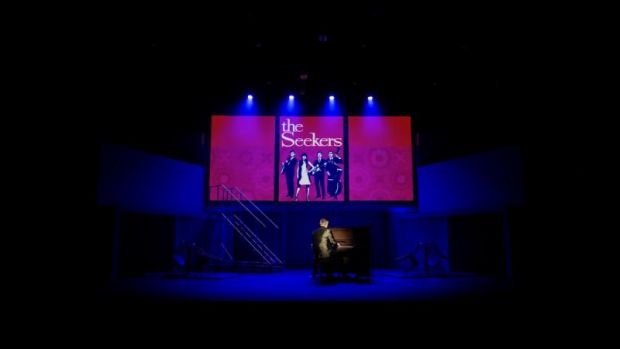
Performances, Patronage & Feedback
Opening night had a touch of celebrity magic. We were incredibly lucky to welcome Keith Potger and his partner, along with several individuals closely connected to The Seekers family and fandom. Their presence elevated the energy and celebration of the evening. Audience reactions throughout the season were full of warmth. Watching from the back of the theatre, I could see people gently swaying in their seats to beloved favourites. The applause was spontaneous and strong every night. The show ends with I Am Australian, led by The Seekers and joined by the full ensemble — a powerful, resonant way to end a show about Australians, for Australians. I couldn’t think of a better closer.
The Result
This show delivered an exceptional result for MMTC — financially, artistically, and emotionally. The nature of the story, the people behind it, and the music — all contribute to a nice, classy, enjoyable production that audiences and company members loved being part of. I would wholeheartedly recommend Georgy Girl: The Seekers Musical to any community theatre group looking for a feel-good, high-quality show that brings your team together and delights your audience.
And yes — it’s good for the coffers, too. ????

